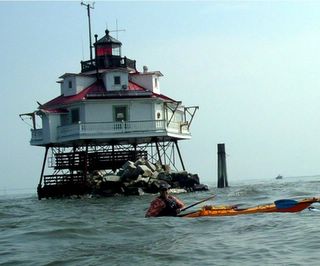Detail of the Maryland Bottle Bill from Pete Hammen
I am also copying this from the minutes to the Baltimore Harbor Watershed Association Meeting. Thanks for the information. We look forward to this bill passing and moving the Free State to be truly "Litter Free".
Here are more details from Pete Hammen:
State Recycling Trust Fund will consist of:
· Newsprint Recycling Incentive Fee
· Telephone Directory Recycling Incentive Fee
· Computer Manufacturer Registration Fee
· Unclaimed deposits
· Fines collected for violation of the provisions of the bill
Trust Fund will be used to:
· Provide grants to the counties to be used to develop and implement local recycling plans
· Provide grants to the counties for public awareness campaigns
· Pay redemption centers the refund value of the returned beverage containers plus a handling fee of 2 cents per container (previous bill had bottlers paying the handling fee)
· At the end of each fiscal year, any unspent or unencumbered balance in the Fund will revert to the General Fund
Redemption Centers:
· Will be certified by the Department
· Each county in the state will set up and run at least one redemption center
· Private retail stores may apply to be a redemption center
· May use reverse vending machines provided that it accepts all types of empty returnable containers
· Pays the refund value to the redeemer
Financial Accountability:
· Redemption centers will file with the Department and the Comptroller a quarterly report, outlining all relevant beverage container transactions; these numbers will be used to calculate handling fees and refund values
· A dealer (retailer) that originates a deposit on a beverage container must prepare an annual report with the Department and the Comptroller; report must include the dollar value of the total deposits for the calendar year collected by the dealer. All deposits collected in their capacity as a dealer must be returned to the Comptroller for deposit in the Fund.
Penalties for violation:
· A redemption center, dealer, distributor, or manufacturer that violates any of the provisions of this bill is liable for a civil penalty up to $10,000 for each violation
· A person may be fined up to $100 for returning between 25 and 100 beverage containers illegally
· A person may be fined up to $500 for returning more than 100 beverage containers illegally
The next steps are to start building support and an action plan with groups to contact (such as labor, teachers, MaryPirg, Sierra Club, Farm Bureau, glass manufacturers, watershed groups, Parks dept..).
Letters to the editor and state and local officials in support of the Bottle Bill are needed.

